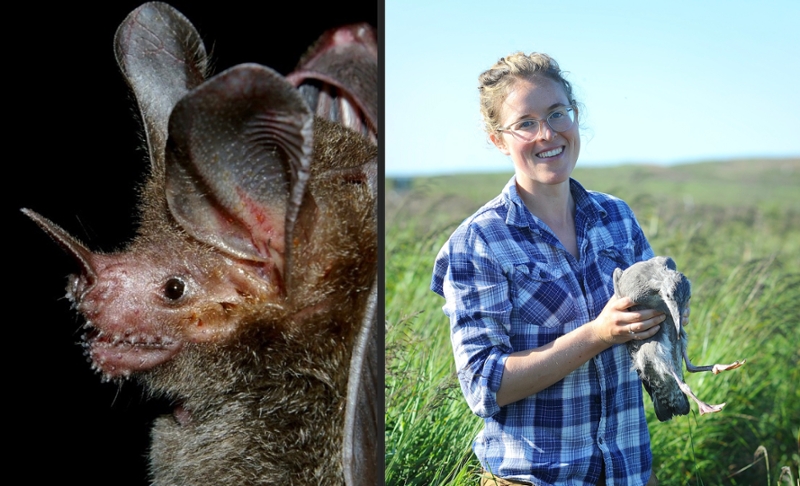Biologist Patricia Jones Coauthors Groundbreaking Study on Bat Memory
By Tom PorterA study coauthored by Assistant Professor of Biology Patricia Jones has found that bats may have a much longer-term memory than previously thought.
The paper, published last month in Current Biology, describes how forty-nine frog-eating bats (Trachops cirrhosis), which are native to parts of Central and South America, were captured and exposed to a series of ringtones, one of which also led to a reward in the form of a baitfish snack. After they learned this rewarded sound, they were microchipped and released back into the wild.
Over the next four years, eight of those bats were recaptured and exposed again to the particular ringtone associated with a food reward. Even after four years, the bats flew toward that sound, while seventeen control bats, who were not part of the initial experiment, showed weak responses to the acoustic cues, according to the study.
"We expected that bats should be able to remember sounds between seasons, but four years is even longer than we anticipated.”

Jones, who is also director of the Bowdoin College Scientific Station on Kent Island, says the findings are significant because this level of cognitive ability in bats was hitherto unknown. “Frog-eating bats are an amazing species to work with because they are very fast learners. They hunt frogs by listening for frog calls and they can learn which sounds are associated with prey from overhearing other bats foraging, so it was really exciting for us to know that they could remember sounds for so long.”
Very few studies are able to look at long-term memory with wild animals, she explains, but the use of artificial sounds—in this case ringtones—allowed researchers to test how long a bat remembered a sound they could be certain it hadn’t heard in years.
“Many of the frogs that these bats eat are seasonal breeders, so they only call during part of the year. We expected, therefore, that bats should be able to remember sounds between seasons, but four years is even longer than we anticipated.”
Jones says this was a particularly fun collaboration because she originally trained these bats to respond to the ringtones as part of her PhD work at the University of Texas several years ago. “During this time, the lead author for this study, May Dixon, was my field assistant. May then went on to graduate school and re-caught our bats to test their memories.”



